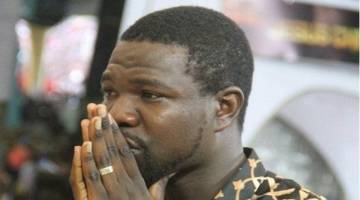South Africa – Eskom has announced the return of load shedding starting on Friday, with rolling blackouts expected to persist throughout the weekend.
This marks the end of a nearly 10-month reprieve from power cuts, the longest uninterrupted period without outages in years.
Eskom attributed the latest round of load shedding to a ‘perfect storm’ of unforeseen incidents, including multiple unit breakdowns and delayed maintenance returns.
While initial alerts suggested that load shedding could escalate to Stage 4, the power utility has confirmed that Stage 3 will be implemented from 17:00 on Friday and will run through the weekend or until further notice.
However, Eskom warned that the possibility of escalating to Stage 4 remains if more generating units fail or experience delays in returning to service.
Background: South Africa’s Load Shedding Crisis
Load shedding has been a persistent challenge in South Africa since 2007, a result of Eskom’s aging infrastructure, poor maintenance, financial mismanagement, and rising electricity demand outpacing supply.
The crisis worsened in the past decade, with rolling blackouts becoming a regular feature of life, disrupting businesses, households, and economic activity.
At its peak in 2022 and 2023, South Africa experienced record-breaking levels of load shedding, with outages reaching Stage 6 and occasionally higher.
These extreme power cuts saw residents and businesses left without electricity for up to 12 hours a day, severely impacting economic growth and public morale.
However, from early 2024, the situation seemed to improve.
The government, under President Cyril Ramaphosa, implemented measures such as bolstering Eskom’s generation capacity, expediting the adoption of renewable energy, and increasing private sector participation in electricity generation.
This resulted in a dramatic decrease in power outages, leading to hopes that the load shedding crisis was finally under control.
Despite these improvements, Eskom and government officials consistently warned that the energy crisis was not fully resolved, and setbacks were inevitable.
The latest announcement confirms those concerns, underscoring the fragility of the power grid.
Eskom’s Current Challenges
The current power supply constraints stem from a combination of planned maintenance and unexpected unit breakdowns.
According to Electricity Minister Kgosientsho Ramokgopa, six critical units at key power stations broke down, five of which remain offline.
Additional units that were undergoing scheduled maintenance also failed to return to service on time.
To maintain system stability, Eskom had been relying heavily on its Open Cycle Gas Turbines (OCGTs), which consume expensive diesel fuel.
By Friday, these reserves were depleted, forcing Eskom to implement load shedding to replenish emergency reserves and prevent a total grid collapse.
“We were under the impression that load shedding was behind us, but we have to protect the integrity of the system,” Ramokgopa said during a State of the System media briefing. “It’s disappointing for all of us, but the trendline is still in the right direction.”
City of Cape Town Load Shedding Adjustments
The City of Cape Town has implemented measures to cushion residents from the full impact of Eskom’s load sheddingschedule.
The city announced that its energy reserves would allow it to reduce the severity of load shedding by at least one and sometimes two stages.
“For the duration of the weekend, we will protect the city from at least one and sometimes two stages of load shedding. Please monitor City social media and web platforms for updates if Eskom’s load shedding persists,” the City of Cape Town said in a statement.
On Friday, while Eskom is implementing Stage 3 nationwide from 17:00, Cape Town will operate at Stage
1. However, from 22:00, the city will move to Stage 3 in line with the rest of the country.
Updated Load Shedding Schedule for Cape Town (31 January 2025):
- Stage 1: 17:00 – 22:00
- Stage 3: 22:00 – 06:00
Eskom has committed to providing an update on the power situation by Sunday, 2 February 2025.
Source: Business Tech
Like this:
Like Loading...

































































































